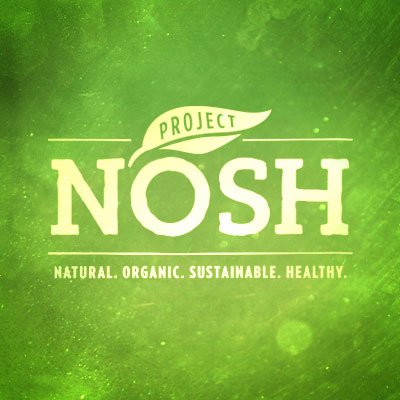
Something is Working in Denmark -- A National Organic Policy
(Members of U.S. Congress recently visited Denmark to learn about the country's organic initiatives. Photo courtesy of Paul Holmbeck.)
How Organic Insider operates: We accept no advertising, we have no paywalls and we make our newsletters free to everyone because vital information about our industry needs to get out to as many people as possible. Please consider supporting our work, whether you are an individual or a company. Thank you so much.
When it comes to advancing organic, Denmark is leading the way.
According to statistics from Organic Denmark, three out of four Danes buy organic food every single week, and in 2020, 12.8% of Danes’ food purchases were organic products, the highest organic market share in the world.
Even more impressive is how organic has made serious inroads in the public sector. 89% of the food consumed in the City of Copenhagen’s public canteens, such as day-care centers, nursing homes and schools, is organic.
Seeking inspiration and education, several members of the U.S. House Agriculture and Appropriations Committees — including Chellie Pingree (D-ME), Cheri Bustos (D-IL), Shontel Brown (D-OH), Stacey Plaskett (D-USVI), Lois Frankel (D-FL) and Alma Adams (D-NC) — recently visited Denmark to learn its strategies for success.
And if there is anyone who can articulate why organic has gained such traction there, it is Paul Holmbeck.
A dual citizen of both the U.S. and Denmark, Paul has been advocating for organic in the country for nearly three decades, most recently serving for 21 years as political director of Organic Denmark. Needless to say, he has seen it all from the ground floor, witnessing what has worked and what hasn’t.
When asked what the U.S. should be doing differently to gain more acceptance from both consumers and government officials, his answer was clear.
“In the U.S., there is a standards board (the USDA’s National Organic Standards Board) but is there a national organic policy plan?” he asked. “Since the mid-1990s, Denmark has had an organic policy platform. In the beginning, there was infighting and tension, but there was dialogue. Eventually, we made a plan with 64 recommendations, and 49 were implemented completely. We had to fight for money from the government, but over time, our plans went from catalogs to actual policy. Our approach was multipronged and very collaborative, and we never talked negatively about conventional agriculture.”
NATIONAL ORGANIC ACTION PLAN
While it may not be well known to most people, particularly to those who were not politically engaged in the organic industry from 2000 to 2010, the U.S. does have a national policy plan.
Published in January 2010 and representing the culmination of five years of meetings that engaged diverse stakeholders across the country, the National Organic Action Plan (NOAP) articulates a vision for the future of organic food and agriculture in the United States.
According to Liana Hoodes and Michael Sligh, long-time industry veterans and the two main co-authors of the NOAP, it was presented to the USDA and all of its agency and section heads, members of Congress, and at many organic conferences.
Some of the report’s specific USDA recommendations were adopted, including the creation of a cross-agency USDA organic policy coordinator, a role that greatly helped to educate all USDA agencies on organic and helped to engage different parts of USDA that had never before addressed organic. Other recommendations have been taken up as well, such as the creation of a (non-governmental) Organic Farmers Association, deepening organic ties to farmers of color, as well as increased support for organic research, transition to organic, and organic crop insurance.
As is evident from reading the NOAP report, it is a very ambitious, exhaustive, inclusive and thorough effort, which resulted in tangible benefits. Furthermore, it is an extremely comprehensive planning tool befit for a $62 billion industry, especially one which aims to be a critical component of our nation’s food supply and an answer to our environmental challenges. It is exactly what our industry should have.
In an ideal scenario, the NOAP is a living, breathing document that is updated on a yearly basis; all key stakeholders collaborate on it, endorse it and use it to advance policy when speaking with USDA officials and members of Congress; and it is widely considered to be the single organic policy platform in our industry.
Reality, however, is telling us something else.
The most recent version of the NOAP is from 2010, and there are no concrete plans to update it. Most key stakeholders in the industry operate in silos and are not using the NOAP as a unifying policy platform to advance critical goals. Also, far too many individuals in organic do not even know that the NOAP exists.
An uncomfortable truth in our industry, which many people refuse to publicly acknowledge, is that there has been a severe lack of trust and little collaboration between the most important organic non-profit groups and the Organic Trade Association (OTA). The OTA plays a valuable role in the industry, particularly with promotion and research, and it has considerable political influence within the USDA. However, it is a trade group — not a watchdog organization — and far too many people conflate the two.
“There are nine national organizations that operate in the public interest keeping a close eye on the organic program — Beyond Pesticides, Center for Food Safety, Organic Farmers Association, National Organic Coalition, The Cornucopia Institute, Organic Consumers Association, Consumers Union, Wild Farm Alliance and OrganicEye — and on all of the hot button issues, their views are diametrically opposed to those of the OTA,” said Mark Kastel, Co-Director of OrganicEye.
All that being said, for our industry to maximize its potential and gain much greater support among politicians and consumers, we would benefit from a single, national organic policy platform that all key stakeholders can get behind and promote.
Whether that is a revised NOAP or a scaled-back version that is nothing more than agreeing on the following four points:
– All forms of genetic engineering, including gene editing and synthetic biology, should be never be allowed in organic.
– Stronger rules and enforcement to prevent fraud in organic, both here and abroad.
– 20% of farmland in the U.S. to be organic by 2050.
– The USDA should not be allowed to appoint Special Government Employees to the National Organic Standards Board.
….that is for the industry, as a whole, to determine.
Despite what has happened in the past, we should continue to look across the ocean for inspiration.
While Denmark still has a long way to go in terms of optimal market penetration, it is further ahead than any other country. As such, there is plenty to learn from this nation.
“The lesson of Denmark is that a single, coordinated organic policy and a mobilized private sector helped drive change. If you want influence, you have to join forces and agree on enough things to have a common framework,” said Paul Holmbeck.
 |
With gratitude, 
Max Goldberg, Founder |
Quick Hits
* Forager Project and Veganuary have joined forces to launch the Vegan School Lunch Challenge.
* One year after Danone dropped 89 organic dairy farmers, the industry is calling on Danone to do more.
* Sun+Earth Certified brings eco-friendly cannabis to the mainstream.
* Former U.S. Open tennis champion Sloane Stephens has joined Lemon Perfect as an investor and spokeswoman.
* In honor of its 67th anniversary, 67 Things You Didn’t Know About Natural Grocers.
* A former Argentine tennis player has opened up an organic street food concept in Venice, CA.
* Center for Food Safety blasts the “irrational” EPA risk assessment of the super-toxic dicamba pesticide.
* If consumers were told the truth about what’s in their food, they’d buy less of these.
* How cool is this organic soft serve ice cream truck?
New Organic Products
Regenerative Organic Certified Coffee from Heirloom Coffee Roasters
Heirloom Coffee Roasters is the first brand to bring fully Regenerative Organic Certified coffee to market, with its beans grown in Cooperativa Sacacli of Jinotega, Nicaragua. The coffee contains flavor notes of almond butter and cocoa, and it has a floral finish. Available at independent grocery retailers across the West Coast, food service distributors nationally, and on the company's website.Grain-Free, Cassava Spaghetti from Jovial Foods
Crafted in Italy by artisan pasta makers using the same family traditions for over a century, the organic cassava, grain-free spaghetti from Jovial Foods is free from gluten, the top 8 allergens, legumes, gums and lectins. It is produced in a dedicated gluten-free facility, contains 4g of fiber per 2 oz. serving and received Glyphosate Residue Free certification.New Flavors of The Only Bar from Truvani
The Only Bar from Truvani has expanded its line by introducing three new flavors -- Mint Chocolate, Chocolate Peanut Butter and Coconut Cashew. Each bar contains 5-9 ingredients and no refined sugar, no sugar alcohols, no gums and no brown rice syrup. Dairy-free, gluten-free, vegan and certified organic.Herbal Cider Vinegar Tincture from Ancient Nutrition
Ancient Nutrition has taken the time-honored tradition of apple cider vinegar and added a regenerative blend of antioxidant-filled organic superfood ingredients, such as turmeric, goji berry, sumac berry, guava, passionfruit, elderberry and moringa leaf. A proprietary, patent-pending, dual-stage, live fermentation process is used to increase bioavailability.
Weekly News Summaries

USDA to Invest up to $300 million in New Organic Transition Initiative
According to the USDA National Agricultural Statistics Service, the number of non-certified organic farms actively transitioning to organic production dropped by nearly 71% since 2008. Through the comprehensive support provided by this initiative, the USDA hopes to reverse this trend.

Sales of Plant-Based Meat are Telling Two Different Stories
By Elaine Watson
Dollar sales of refrigerated meat alternatives are declining in double-digits, while frozen products are growing in the high single digits, according to IRI data crunched by 210 Analytics.

Eat the Change raises $14.5M to help launch Just Ice Tea
By Christopher Doering
With Seth Goldman's new iced tea brand set to hit shelves next month, the financing was led by Collaborative Fund, S2G Ventures and previous Honest tea stakeholders, distributors and suppliers.

Study: Organic Dairy Farming Can Store Carbon and Reduce Greenhouse Gas Emissions
Just published in the Journal of Cleaner Production, a University of Wisconsin-Madison research group unveiled a dairy lifecycle assessment conducted on Organic Valley farms that shows small organic dairy farms, which focus on grazing and organic production techniques, are low greenhouse gas champions.

How Will the War in Ukraine Impact Food Security in 2023?
By Flora Southey
In a worst-case scenario, McKinsey is predicting a food deficit representing a year’s worth of nutritional intake for up to 250m people – or 3% of the global population.

Butterfly Closes $1 Billion Food-Focused Fund
The LA-based private equity firm, which owns large stakes in MaryRuth Organics and Pete & Gerry’s Organic Eggs, has closed on its sophomore fund.

Celebrity Chef Giada De Laurentiis launches Giadzy, Raises $1.4M
By Brooke DiPalma
The e-commerce platform is on a mission to "bring real, good, authentic, organic ingredients from Italy to the United States."

Vividly’s raises $18M Series A to Help CPG Brands Increase Demand More Effectively
By Chase Roberts
Vividly, a software solution that helps trade performance management, closed on a financing led by Vertex Ventures US.

Square Baby raises $1.8M to Expand Nationally
The organic baby food brand will use the funds to support national expansion, fuel DTC growth and serve the quickly growing waitlist of over 10,000 families.
Want to share this newsletter on social media? You can use this link: Newsletter Link
The material in this newsletter is copyrighted and may be reprinted by permission only. All requests must be in writing. Please use our contact form to request republication rights.
Newsletter Archive
Quick Hits
* Forager Project and Veganuary have joined forces to launch the Vegan School Lunch Challenge.
* One year after Danone dropped 89 organic dairy farmers, the industry is calling on Danone to do more.
* Sun+Earth Certified brings eco-friendly cannabis to the mainstream.
* Former U.S. Open tennis champion Sloane Stephens has joined Lemon Perfect as an investor and spokeswoman.
* In honor of its 67th anniversary, 67 Things You Didn’t Know About Natural Grocers.
* A former Argentine tennis player has opened up an organic street food concept in Venice, CA.
* Center for Food Safety blasts the “irrational” EPA risk assessment of the super-toxic dicamba pesticide.
* If consumers were told the truth about what’s in their food, they’d buy less of these.
* How cool is this organic soft serve ice cream truck?




